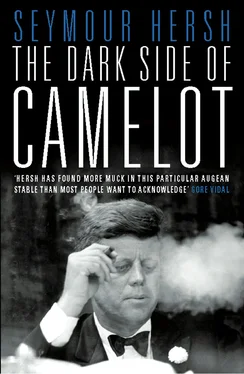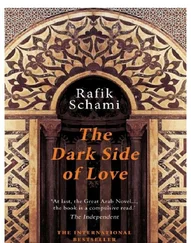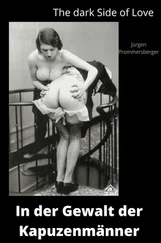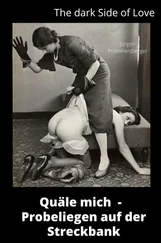Joe Kennedy’s decision in 1946 to sell Somerset to Longy Zwillman and Joe Reinfeld and get out of the liquor business has been interpreted by some historians as a result of Jack Kennedy’s decision—made with his father’s strong encouragement—to run for Congress that year. “He had enjoyed thirteen profitable years,” wrote Richard J. Whalen, in The Founding Father , a bestselling 1964 biography of Joseph Kennedy, “but the whiskey trade was vaguely embarrassing and not at all in keeping with the public effect of dignity that Kennedy wished to achieve.” And yet Joe Kennedy continued to flaunt his liquor connection after his sons moved to Washington, routinely sending gifts of high-priced scotch to the aides and colleagues of his sons. “Even when Bobby was attorney general,” recalled Joseph F. Dolan, a top Kennedy deputy in the early 1960s, in a 1995 interview for this book, “every Christmas one of the black clerks would come around the Justice Department handing out bottles of Haig & Haig Pinch. If you got two bottles, the light shone on you.”
Joe Kennedy’s secret world also involved gambling. Harold Clancy, who began working for Kennedy in the late 1950s, recalled in an interview that Kennedy briefly considered buying into the mob-dominated company that manufactured the totalizer systems used by racetracks around the country to compute and transmit betting odds and race results. Kennedy decided against it. In 1943 he did buy 17 percent—a controlling interest—of the Hialeah Race Track in Miami, later selling it at a profit. Just how much and how seriously Kennedy gambled is not clear. His wife, Rose, in her memoir, wrote of visiting the track with her husband “a couple of times a week,” adding that she “seldom ventured” from the two-dollar window. Kennedy also was a regular at the roulette tables in Miami Beach casinos during and immediately after World War II.
Joe Kennedy certainly understood that there was big money to be made from racetracks and gambling. In the mid-1940s he made a strenuous, and secret, effort to buy the Suffolk Downs Race Track near Boston at a fraction of its true value. Kennedy didn’t get his way, but his hard-line tactics evoked the postwar tactics of organized crime families seeking to expand into legitimate businesses: threats, payoffs, and judicial corruption.
Suffolk Downs was the major asset of the Aldred Investment Trust (AIT), a nearly bankrupt Massachusetts firm that was registered with the SEC. During World War II the firm’s trustees, in what was later determined to be a “gross abuse of trust,” sold off many of its investments in order to buy the racetrack; some of the trustees then appointed themselves highly paid officers of the track. The SEC and an investor successfully sued AIT’s management in federal court and forced the appointment of two outside receivers, who were instructed to reorganize or liquidate the trust. After the war, a group of independent investors, who included a financier named Richard Rosenthal, of Stamford, Connecticut, bought stock in AIT but found, to their dismay, that the court-appointed receivers were in the process of selling off the firm’s control of Suffolk Downs for slightly more than $1 million—one-tenth the racetrack’s value. The buyer, as all involved learned later, was Joe Kennedy, operating in his usual manner. The receivers’ “idea of competitive bidding,” Rosenthal recalled in an interview for this book, “was to get into a telephone booth with Joe Kennedy. They made a deal and brought it to court. We objected.” Rosenthal retained his brother-in-law, the New York attorney Milton S. Gould (later of Shea and Gould), and others, and filed suit in federal court in Boston to stop the sale. “We argued that they [AIT management] had not followed common sense in having a private negotiation. The minimum is that you should have taken bids.” What he and his lawyers did not know, Rosenthal added, with a laugh, “was that you couldn’t beat Joe Kennedy in the Boston area.”
Gould, who in 1997 was still practicing law in New York, recalled in an interview what happened next. The federal judge hearing the case, George C. Sweeney, who was named to the bench by President Roosevelt in 1935, summoned Gould and his cocounsel to an afternoon meeting in early 1946 in his chambers with the two AIT receivers, their lawyer, and the regional SEC director. Sweeney had a tough message for Gould and his clients: “You’re sticking your nose where you don’t belong. This is a local thing and we want local people involved.” Gould later concluded that the judge was telling him that the AIT receivers did not want to sell the racetrack “to a bunch of Jews.” Gould’s cocounsel proposed to write a brief for the judge, summarizing the legal issues involved, to which Sweeney replied: “I don’t need a brief. I may be wrong, but I’m never in doubt.” Judge Sweeney, who died in 1965, then announced that he would deny the Rosenthal motion to intervene, with this sweetener: he would instruct the AIT receivers to buy back the stock held by Rosenthal and his colleagues for $250,000 more than they had initially paid; he also would grant Gould and his legal colleague a fee of $100,000.
The Rosenthal-Gould team rejected Judge Sweeney’s offer and filed suit in the U.S. Court of Appeals. Competitive bidding for the racetrack was eventually ordered, and Suffolk Downs was sold at auction to a Boston businessman for roughly $10 million. That businessman was not Joe Kennedy or even a proxy. Kennedy lost out, but not before one last, and typical, maneuver. Richard Rosenthal, while struggling unsuccessfully to put together a syndicate to bid on the track, received a telephone call and a visit from Joseph Timilty, the former police commissioner of Boston, who—as Rosenthal did not know at the time—was one of Joe Kennedy’s most trusted operatives. “His entrée,” recalled Rosenthal, “was that he’d been police commissioner and he could be helpful to me.” Rosenthal also did not know that in March 1943, Timilty, then police commissioner, and six of his aides had been indicted by a grand jury in Boston and forced out of office for conspiring “to permit the operation of gaming houses and the registration of bets.” The charges against Timilty never came to trial. *
At their meeting, Rosenthal told me, Timilty raised a disturbing issue: “He said you have to be careful how you handle this. This track is supported by people who drive out to it, and the roads are not in great shape. Suppose somebody decides to start repairing them during the [racetrack] meet. You’d be out of business.” Rosenthal responded, simply, that “they wouldn’t do that.” “I wouldn’t be too sure,” answered Timilty. It was an obvious threat.
Rosenthal had few illusions, even then, about Joe Kennedy. In the years immediately before the war, as a young stock analyst in New York, he was assigned the shipbuilding industry. He wrote Kennedy, then chairman of the Maritime Commission, to arrange a face-to-face meeting. The airplane flight from New York to Washington was unforgettable—it was Rosenthal’s first. He and Kennedy had “an informative conversation,” recalled Rosenthal. “I was two years out of school and brash and young. I had a conviction that we were going to get into war.” Kennedy asked whether Rosenthal had looked into a certain company, Todd Shipyards, and volunteered his view: “I think it’s one of the best shipyards in the United States.” Duly impressed, Rosenthal recommended Todd as a buy in his report. Years later, Rosenthal said, he learned that Kennedy, while chairman of the Maritime Commission, had maintained a large, and secret, personal investment in Todd. The stock was registered in the name of Edward E. Moore, Kennedy’s longtime personal secretary. *
Ironically, Rosenthal maintained his financial interest in AIT and eventually became its sole owner. The firm is still being operated as a private investment company by Rosenthal, now an investor and philanthropist in Stamford. “When I was young,” he said, “I thought intellect would win over everything. I honestly didn’t believe that things got fixed, or that you could buy judges.” He still does not understand, Rosenthal said, why Kennedy wanted the track and was willing to spend “a lot of political currency to get it.” The financier shrugged and then offered an answer: “The track was a big cash handle business and he may have wanted it for other business.”
Читать дальше












